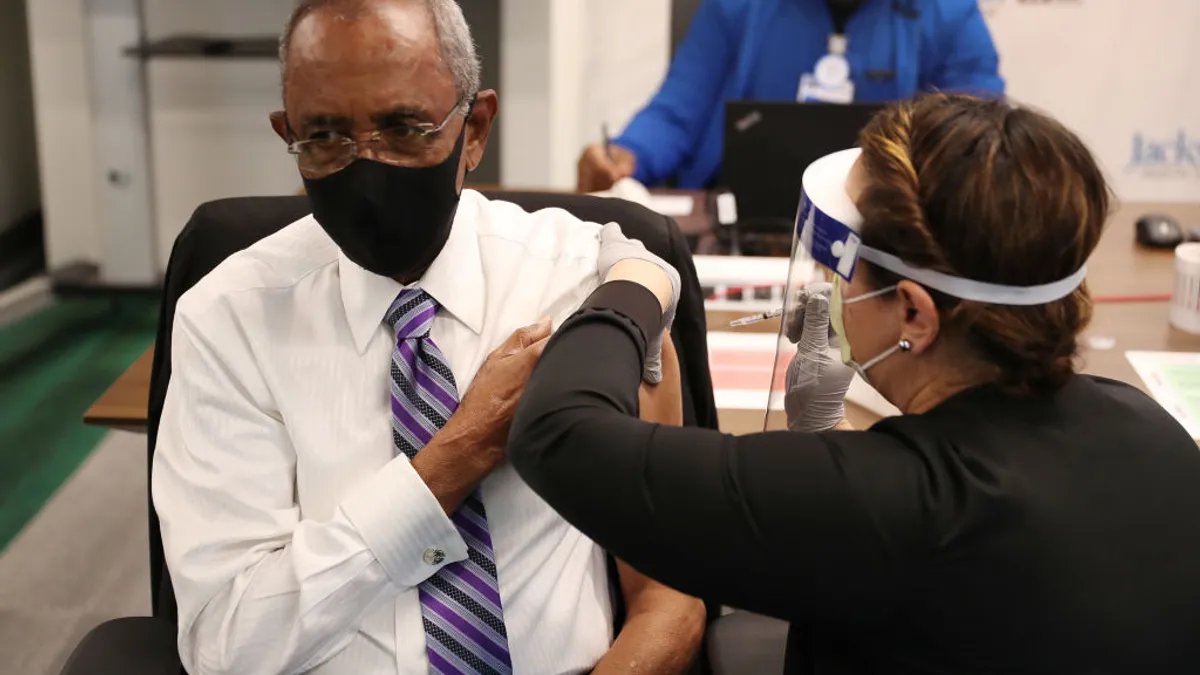Dive Brief:
- To assist employers in complying with the emergency temporary standard regarding COVID-19 vaccination released Nov. 4, the Occupational Safety and Health Administration released two sample policies for employers to use: one that establishes a mandatory vaccination policy, and another that allows employees to opt for weekly testing and masking in lieu of vaccination.
- The sample policies give examples of what proof of vaccination may look like as well as the kind of documentation required from all employees regardless of vaccination status, including statements that an employee is not planning to receive a vaccination. The policies also note that employers will be required to collect all information about employee vaccination status by 30 days after publication of the ETS.
- In addition, the policies give example explanations regarding leave time to receive vaccination and to recover from vaccination, should employees need it.
Dive Insight:
The ETS — though already being challenged by some attorneys general — will require HR departments to move fast to achieve compliance, and attorneys previously told HR Dive that employers likely should not wait until the challenges are resolved to do so.
That said, the sample policies provide some clarification for HR departments regarding the kind of documentation they will need to gather and proof of vaccination that will be accepted in a readable format outside the 490-plus page document behind the ETS. It also provides guidance on face-covering requirements, testing and return-to-work criteria after a positive COVID-19 test.
Additionally, while certain workers apply to the 100-worker threshold that makes an employer beholden to the rule, the samples emphasize that the mandate may not apply individually in every case, such as to:
- Those who do not report to a workplace where other individuals such as co-workers or customers or present.
- Those who work from home.
- Those who work exclusively outdoors.
The mandatory vaccine policy sample also points out that certain employees who would otherwise require a vaccine may be exempted, such as in cases where the vaccine is contraindicated, or where an employee has a disability or a sincerely-held religious belief that would prevent them from receiving a vaccine.











